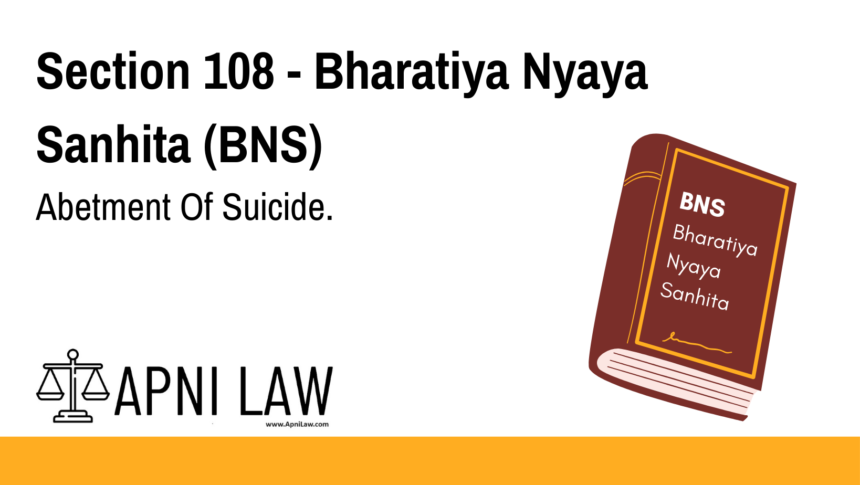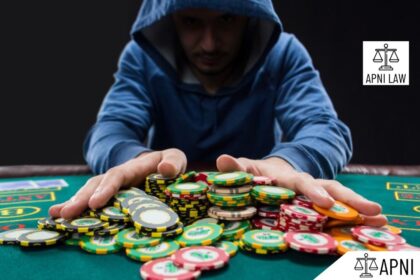Code
If any person commits suicide, whoever abets the commission of such suicide,
shall be punished with imprisonment of either description for a term which may extend to ten
years, and shall also be liable to fine.
Explanation of Section 108 BNS
Section 108 of the Bharatiya Nyaya Sanhita (BNS), 2023, deals with cases where a person aids, provokes, or encourages another person to commit suicide. Unlike Section 107 BNS, which applies to vulnerable persons (minors, mentally ill, intoxicated individuals), Section 108 applies to all individuals.
Key Elements of Section 108 BNS:
- Act of Abetment:
- Encouraging or provoking suicide through words, actions, or threats.
- Providing the means (e.g., poison, weapon, or other assistance).
- Mental harassment or continuous pressure leading to suicide.
- Punishment:
- Imprisonment up to 10 years and
- Liable to fine
Illustrations
Example 1: Mental Harassment Leading to Suicide
A husband mentally tortures and abuses his wife continuously, leading her to commit suicide.
- The husband can be punished under Section 108 BNS with imprisonment of up to 10 years.
Example 2: Encouraging Suicide Online
A person encourages another individual on social media to take their life through cyberbullying.
- This is abetment of suicide, and the offender can face serious legal consequences.
Example 3: Suicide Due to Financial Pressure
A moneylender continuously threatens and pressures a debtor to repay a loan, forcing the debtor to commit suicide.
- The moneylender can be prosecuted under Section 108 BNS.
Common Questions and Answers on Section 108 BNS
1. How is Section 108 different from Section 107 BNS?
- Section 108 BNS applies to all persons who abet suicide.
- Section 107 BNS applies only when the victim is a child, mentally ill, delirious, or intoxicated.
2. Is Section 108 BNS a bailable offense?
No, abetment of suicide is a non-bailable offense due to its serious nature.
3. What if a person unintentionally influences another to commit suicide?
To be held liable under Section 108 BNS, the accused must have clear intent and active participation in abetment. Unintentional influence may not attract punishment.
4. What are some real-life cases where Section 108 applies?
- Suicides due to domestic violence or dowry harassment.
- Cyberbullying or blackmail leading to suicide.
- Employers harassing employees, pushing them to take their lives.
5. Can a person convicted under Section 108 BNS get a lighter sentence?
Yes, courts may consider mitigating factors such as lack of direct intent and reduce the punishment accordingly.
Conclusion
Section 108 BNS ensures strict legal consequences for those who abet suicide through mental harassment, provocation, or assistance. This provision plays a crucial role in preventing undue pressure, abuse, and psychological torment that lead individuals to take their own lives.
For legal help, visit ApniLaw today! 🚀








